Rapid sea ice loss and ocean acidification from climate change are altering the growth and nutritional value of microscopic algae.
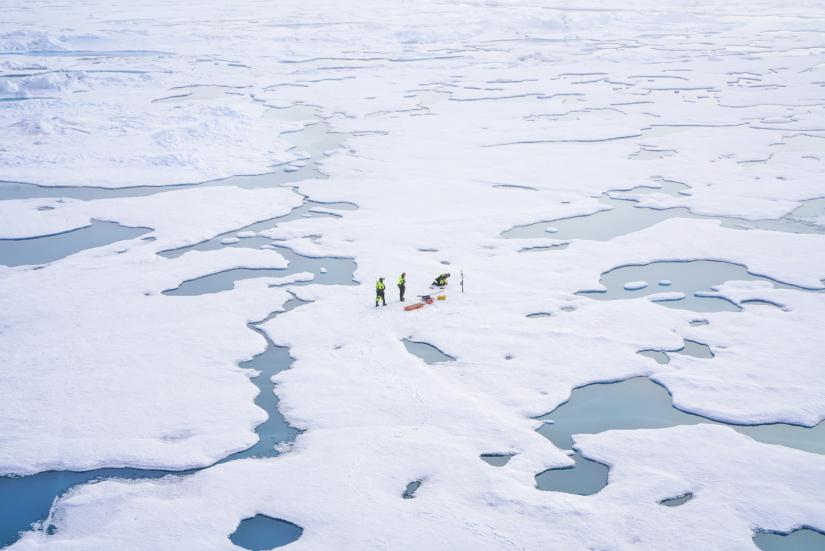
Photo: Rebecca Duncan
Rapid sea ice loss and ocean acidification from climate change are altering the growth and nutritional value of microscopic algae. These algae are an essential food source for fish, krill, and other small organisms that sustain larger animals such as whales, seals and penguins.
Sea ice is a vital habitat for microalgae, but the thickness and coverage of sea ice has reduced significantly. Antarctic sea ice has experienced record lows for the past four years, and researchers predict that by 2050, the Arctic Ocean could be ice-free during summer.
Polar marine ecologist Dr Rebecca Duncan has spent the last eight years undertaking field work in polar regions, examining the changing composition of sea ice microalgae. She received her PhD from the University Technology Sydney (UTS) with UNIS Svalbard in 2024.
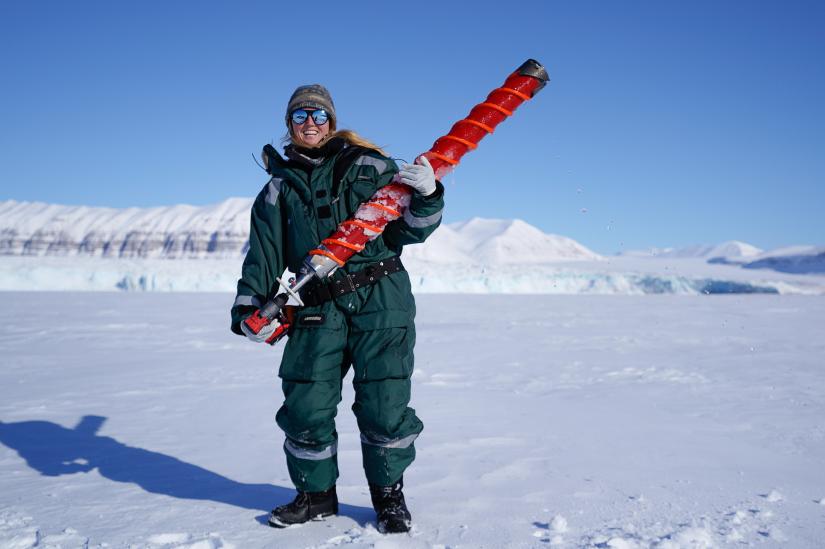
Dr Rebecca Duncan. Photo: Stuart Thomson
Her PhD thesis was recently awarded the Australian Institute of Nuclear Science and Engineering Thesis Gold Medal. She is also a passionate advocate for women in field research and science, and has just been appointed a ‘Superstar of Stem’ by Science and Technology Australia.
“One-tenth of the global oceans are frozen, including the rapidly changing Arctic, Antarctic, and Southern Ocean. These fragile ecosystems depend on microscopic algae as the foundation of their food webs,” said Dr Duncan.
“These tiny algae provide essential nutrition – like fats, proteins, and carbohydrates – for creatures ranging from krill to fish, polar bears and whales. However, the nutritional value of these algae depends on their species and how they respond to environmental changes.”
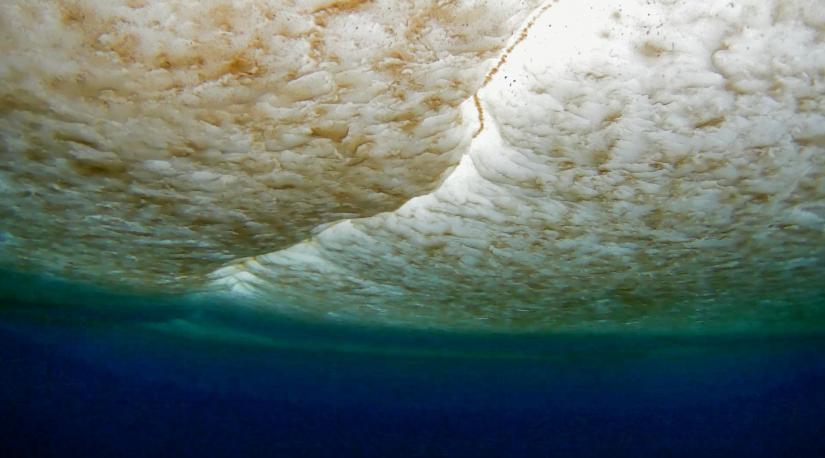
Sea ice algae. Photo: Rebecca Duncan
Dr Duncan's research reveals that ocean acidification, ocean temperatures and the amount of light under the ice impacts microalgae composition. Increased light and rising water temperatures boost fat content in common species, but a critical threshold exists where they stop accumulating essential fats and proteins, altering food quality for the marine animals.
“The krill and other zooplankton depend on microalgae as a food source at certain times of the year to reproduce. If zooplankton fail to reproduce, it disrupts the food chain, threatening fish populations and, in turn, seals and other large animals.
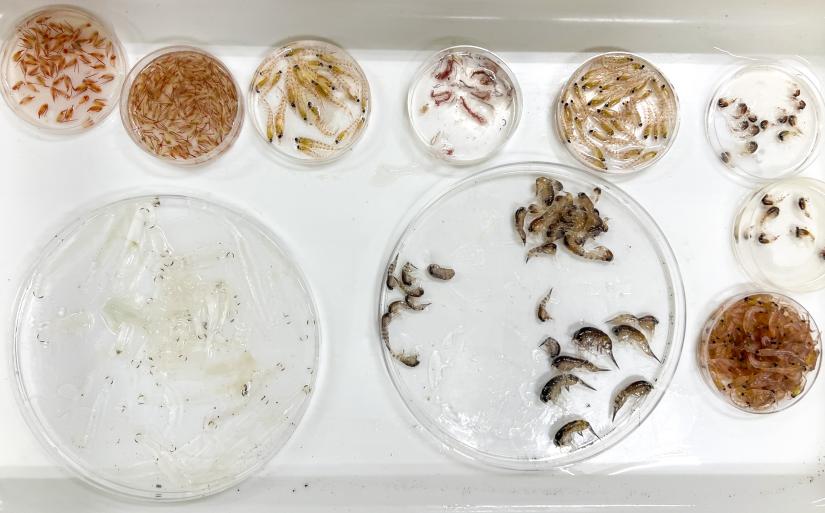
Zooplankton. Photo: Rebecca Duncan
“If we still have some sea ice, but it's melting more rapidly, then it's not a hospitable environment for the microalgae because there is too much light, and the ice is melting too quickly underneath, so it can disrupt their lifecycle.
“If we lose sea ice altogether, then the microalgae that rely on the sea ice will have no substrate to live on. Can this ecosystem function without sea ice algae? Will something else fill the gap? We don’t know the answer to that.”
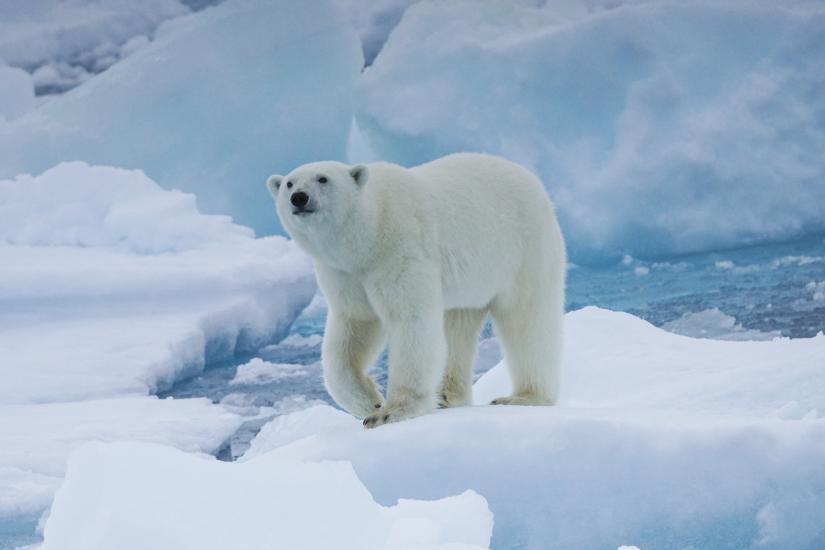
Polar bear. Photo: Rebecca Duncan
Dr Duncan has published five papers based on her PhD research, with the most recent: ‘Seasonal environmental transitions and metabolic plasticity in a sea-ice alga from an individual cell perspective’ in the journal Scientific Reports.
To collect the samples, Dr Duncan, alongside a small international research team, stays in Longyearbyen in Svalbard, an Arctic island north of Norway. They use snowmobiles, or venture out on icebreaker ships, to drill into the frozen ocean.
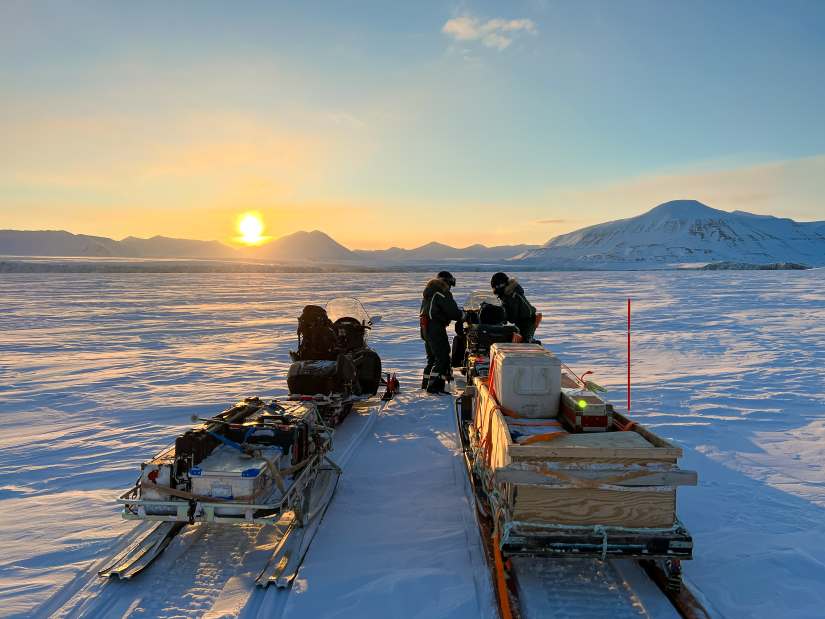
Photo: Rebecca Duncan
She then analyses the samples back in Australia using advanced technology, from microscopy to particle accelerators, including s-FTIR microspectroscopy at the Australian Synchrotron, to unlock unique, species-specific insights at the single-cell level.
Her current research project aims to compare microalgae in land-connected sea ice with those in drifting ocean ice. Land-connected ice is disappearing at a faster rate, and so these microalgae populations are under greater stress.

